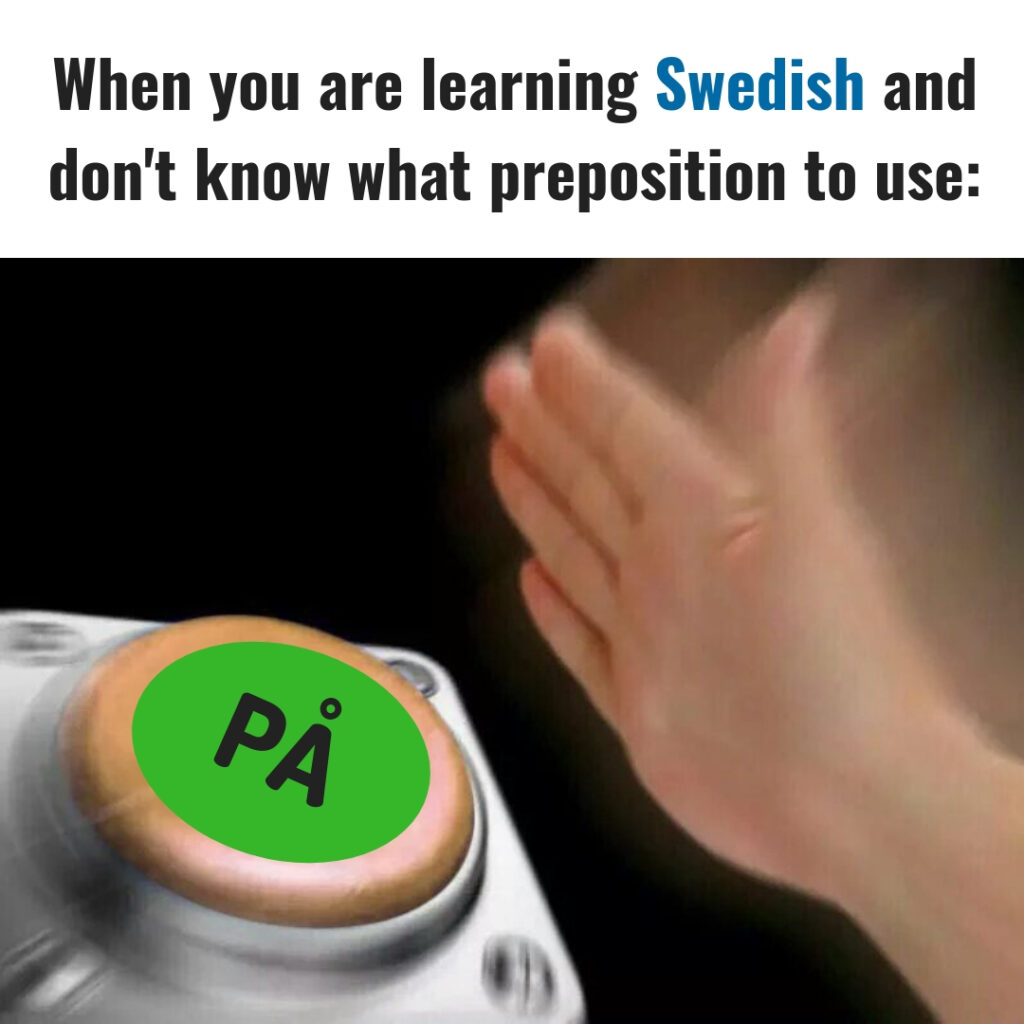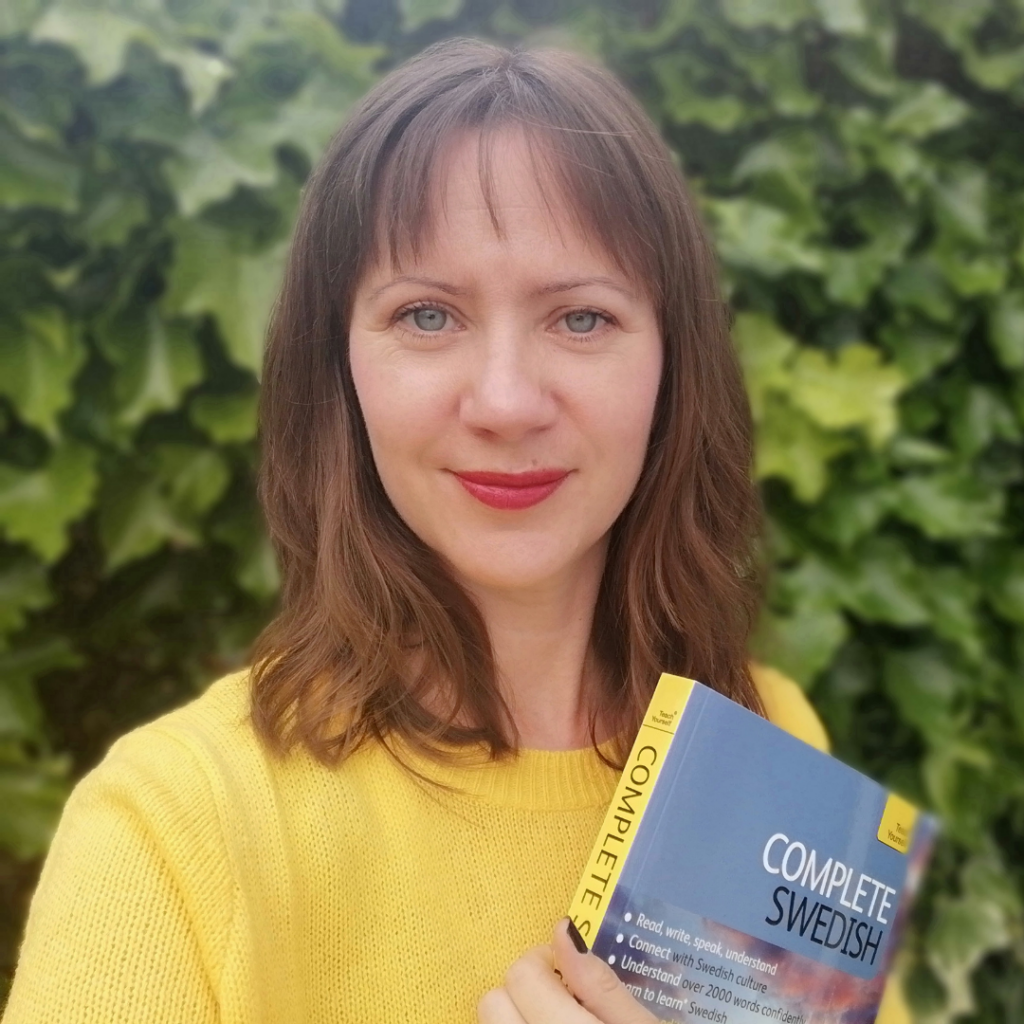Are Swedish prepositions getting you down?
Should I use ‘i’ or ‘på’ with days of the week? Am I sitting ‘i’ or ‘på’ the sofa?
If you have ever asked yourself these types of questions, you are like most other Swedish learners. 🙂
When asking students what they struggle most with in terms of their Swedish, almost everyone says the same thing: prepositions. Interestingly, it doesn’t seem to matter if you are a beginner or an advanced speaker.
Learning and mastering Swedish prepositions is one of the hardest parts of learning the language. But why is it so difficult?
Prepositions have different meanings
Prepositions are very common in many languages; you see them all the time. But the thing that makes it tricky is that Swedish prepositions can mean many different things in different contexts.
På, for example, can mean in, at, by, of, for, over, across and more. Therefore, just looking the word up in a dictionary won’t be of much help. And when it comes to memorising them, this can become confusing. What should you write on the back of your flashcard for ‘på’? One example, or all of them?
Prepositions are difficult to translate literally
Prepositions are often different from what you would expect in other languages. In Swedish, we say that something is ‘in the stairs’ (i trappan) instead of ‘on the stairs’, and we are ‘interested of music’ (intresserad av), instead of ‘interested in music’. And there is no real rhyme or reason for why we use certain prepositions in specific contexts, unfortunately.
Yet another reason why it is difficult to learn Swedish prepositions comes from the belief that we all hold, which is that our own language does things “the right way”, and other languages we learn do things in a “strange way” that doesn’t make sense.
By constantly trying to make sense of the grammar rules in other languages as they relate to your native language, you are focusing too much on your native language and not enough on the language you are learning. When you do this, you are causing your brain to believe that your native language is the most important one, and then it wants to translate everything back into your native language.
Prepositions in time expressions
In time expressions (when something happens), Swedish prepositions play a big role. We often create time expressions with a preposition and some other word, for example på måndag, i måndags, and i helgen. Many time expressions belong to a particular verb tense, which means that a conversation where you want to arrange a time to meet can get very confusing if you get them wrong.
This is not the case just for the Swedish language, prepositions are notoriously hard in other languages too. So if you feel you struggle with prepositions, know that you are not alone.
Download a free e-book
I’ve put together a little mini e-book for you so you can learn the 5 trickiest time prepositions, all in one go!
You won’t find all the time prepositions gathered all in one place in other course books, and this one is FREE.
Just sign up to our newsletter here and you can download the PDF immediately.
Lätt som en plätt! 😉
If you’d like some lessons with us to learn more, just head over here.






